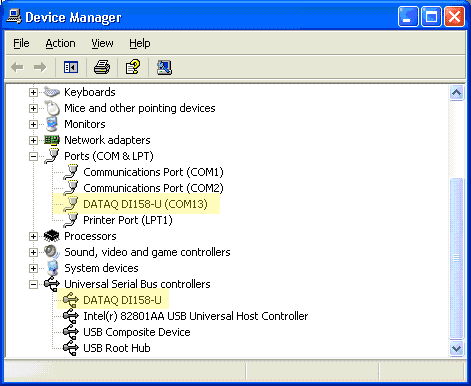That may appear in Device Manager next to 'Universal Serial Bus (USB) Controller' which indicates that a driver is not installed for that device. If no new driver for your USB 3.0 controller is available through Windows update then it will be necessary to. Then expand Universal Serial Bus controllers. Sep 15, 2016 - 2) pci encryption/decryption controller driver. Usb Universal Serial Bus Controller Driver for Windows 7 32 bit, Windows 7 64 bit, Windows 10, 8, XP. Uploaded on 4/17/2019, downloaded 8005 times, receiving a 85/100 rating by 1089 users. Universal Serial Bus (USB) Controller Driver I mave managed to get USB Storage Devices to work, but things like usb printers are not working. The problems will be described in the following images. Universal Serial Bus (USB) controllers are small pieces of hardware that allow your computer to load connections through your USB ports. USB 2.0 is a complete.

Usb Bus Controller Driver Download
note:Universal Serial Bus (usb) Controller Driver Windows 7 Dell
Universal Usb Bus Controller Driver


- Make sure that your computer is connected to the Internet.
- Windows 7 and Windows Vista - Click Start , and then type Device Manager into the into the Start field. Click Device Manager from the search results.
- Windows XP - Click Start, right-click My Computer, click Properties, select the Hardware tab, and then click Device Manager.
- Click the plus sign next to System Devices, and then find the SM Bus Controller entry.
note:
If you do not see an SM Bus Controller entry, your computer does not have an SM Bus Controller or it is not recognizing the controller. Restart the computer and perform these steps again. If you still do not see an SM Bus Controller entry, your computer does not have an SM Bus Controller. - Right-click SM Bus Controller, and then select Update Driver. Follow the instructions to update the driver software.
- If these steps resolved the issue, you do not need to continue troubleshooting.
- If the computer did not find or install the correct driver, continue with the next step.
- Windows 7 and Windows Vista - Click Start , and then type dxdiag into the into the Start field. Click dxdiag or dxdiag.exe from the search results.
- Windows XP: Click Start, click Run, type dxdiag in the Open text box, and then press Enter.
- Click the Display tab.
- Find your chipset information in the Device section.Figure : Chipset information in the DirectX Diagnostic Tool
- Open a Web browser window, and then navigate to a Web search page, such as Google or Yahoo.
note:
Check the Related Links section of this document for links to some of the most common chipset manufacturers' Web sites. - Type the full name of your chipset in the search text field, and then press Enter. Use the search results to go to the official Web page of the chipset manufacturer. Browse to the driver download page, and then follow the manufacturer's instructions to download and install the drivers for your chipset.